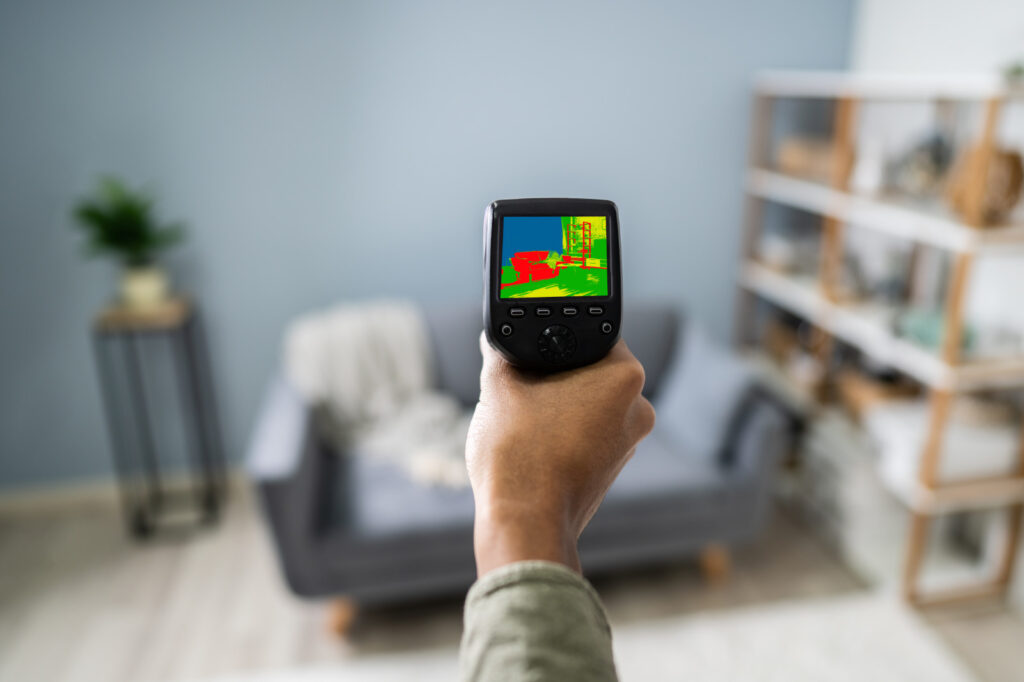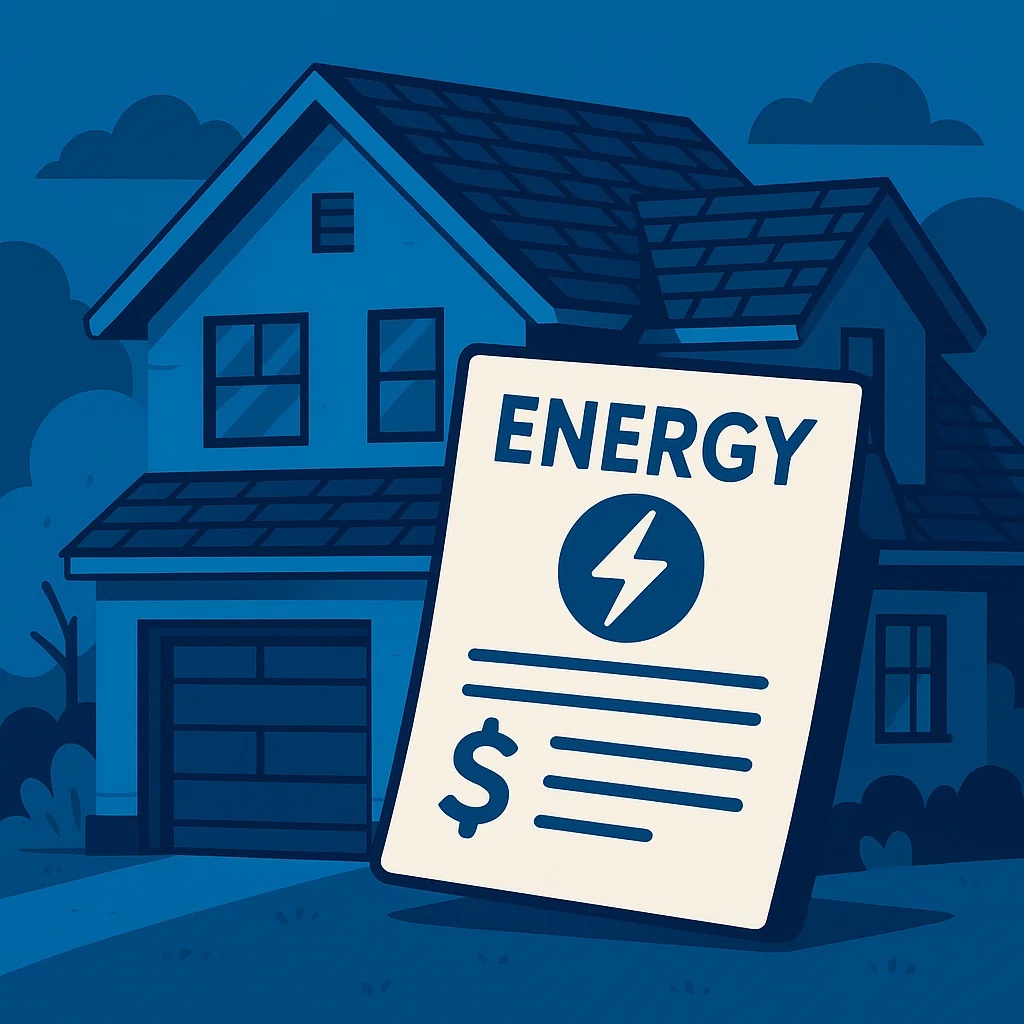Winnipeg’s frigid winters and hot, humid summers make managing heating and cooling costs a year-round challenge for homeowners. With temperatures often dipping below -30°C in winter and climbing above 30°C in summer, without proper insulation, maintaining a comfortable indoor temperature can result in high energy bills. However, one of the most effective ways to reduce energy consumption and cut energy costs is by ensuring your home is properly insulated.
Insulation acts as a thermal barrier, preventing heat transfer between your home’s interior and the outdoors. This helps keep warm air inside during the winter and cool air inside during the summer, reducing the workload on your heating system and cooling system. In this post, we’ll discuss maximizing energy efficiency and explore how proper insulation can lower utility bills, identify key areas of energy loss, and discuss the best insulation solutions for Winnipeg homes.
Understanding Energy Loss in Winnipeg Homes

In poorly insulated homes, heat loss occurs through several critical areas, leading to increased energy consumption and higher heating and cooling costs. During Winnipeg’s harsh winters, heat escapes through:
- Walls: Insufficient or outdated insulation allows warm air to seep through exterior walls.
- Attics: Heat rises, and without adequate attic insulation, a significant amount of warm air can be lost.
- Basements and Crawl Spaces: Cold air infiltration from uninsulated basements and crawl spaces increases heating costs.
Signs of Poor Insulation:
- Drafts or cold spots near windows, doors, and walls
- Higher-than-average energy bills
- Ice dams forming on the roof during winter
- Constant heating to maintain a consistent indoor temperature
- Excessive heating or cooling system usage
If you’ve noticed any of these issues, your house might be experiencing the stack effect. Minimizing the stack effect and upgrading your home insulation can lead to significant energy savings, while avoiding overloading your heating system and improving your home’s energy efficiency.
Types of Insulation and Their Impact on Energy Efficiency
Choosing the right insulation materials can dramatically affect your home’s energy use. Below are the most common insulation materials used in Winnipeg homes, along with their pros and cons.
✅ Spray Foam Insulation
- Pros: Foam insulation provides excellent air sealing, high R-Value, and superior thermal resistance. Ideal for attics, crawl spaces, and wall cavities.
- Cons: Higher upfront cost compared to other types of insulation.
✅ Fiberglass Insulation
- Pros: Affordable, easy to install, and widely available. Good for attics and wall cavities.
- Cons: Less effective in preventing air leakage and prone to settling over time.
✅ Cellulose Insulation
- Pros: Eco-friendly, made from recycled materials, and effective at filling gaps and air leaks.
- Cons: May settle over time, reducing its effectiveness.
Each of these insulation solutions offers different benefits depending on your home’s needs. For a deeper comparison, check out our article Choosing the Right Insulation: Spray Foam, Fibreglass, or Cellulose Insulation.
Key Areas to Insulate for Maximum Savings
To maximize energy efficiency and lower utility bills, it’s essential to focus on insulating the most vulnerable areas of your home.
🔹 Attic Insulation: Since heat rises, attic insulation is crucial for preventing heat loss. Properly insulated attics reduce the risk of ice dams and help maintain a consistent indoor temperature.
🔹 Basement and Crawl Space Insulation: Cold air can easily enter through the basement, making foundation insulation a key component to lower energy consumption and reduce utility bills. Insulating crawl spaces also prevents drafts and moisture buildup.
🔹 Wall Insulation: Insulating exterior walls helps retain heated or cooled air, minimizing the workload on your heating and cooling system. Spray foam and blown-in insulation are excellent options for filling gaps and sealing air leaks in walls.
Understanding R-Value and Its Importance
R-Value measures the thermal resistance of insulation materials—the higher the R-Value, the better the insulation performance. For Winnipeg homes, where extreme temperatures are common, adequate insulation with the appropriate R-Value is essential.
Recommended R-Values for Winnipeg Homes:
- Attic: R-50 to R-60
- Walls: R-20 to R-25
- Basement: R-10 to R-15
Properly insulated homes with high R-Value insulation significantly reduce heat loss and minimize the need for constant heating or cooling, resulting in lower energy bills.
The Role of Ventilation in Energy Efficiency
While insulation prevents heat transfer, proper ventilation ensures moisture control and maintains indoor air quality. Without balanced ventilation, excess moisture can accumulate, leading to mold, mildew, and compromised insulation performance.
🔹 Air Sealing and Ventilation: Sealing air leaks around electrical outlets, windows, and doors improves energy efficiency while ensuring that fresh air circulates throughout your home.
🔹 Preventing Moisture Build-Up: Adequate attic and crawl space ventilation helps reduce moisture accumulation and prevents insulation from losing its effectiveness over time.
Financial Benefits and Rebates
Investing in high-quality insulation can lead to significant energy savings, but the financial benefits don’t stop there. Homeowners in Winnipeg can take advantage of all the government rebates, loans and incentives to offset the upfront cost of insulation upgrades.
💡 Available Rebates and Incentives:
- Manitoba Hydro Energy Efficiency Program: Offers rebates for improving attic insulation, wall insulation, and basement insulation.
- Canada Greener Homes Grant: Provides financial assistance for homeowners undertaking energy efficiency improvements, including insulation upgrades.
By leveraging these rebates, homeowners can cut energy costs while contributing to reducing greenhouse gas emissions.
Common Insulation Mistakes to Avoid
Proper insulation is key to maintaining an energy-efficient home, but common mistakes during installation can reduce its effectiveness. Here are some common pitfalls and tips to avoid them:
❗ Insufficient Coverage: Gaps in insulation reduce its ability to prevent heat transfer. Ensure complete coverage, especially in attics and crawl spaces.
❗ Ignoring Air Sealing: Even with high-quality insulation, air leaks can undermine energy efficiency. Seal gaps around electrical outlets, doors, and windows.
❗ Neglecting Ventilation: Without proper ventilation, moisture buildup can reduce insulation effectiveness and compromise indoor air quality.
❗ Using the Wrong Insulation Type: Different areas of the home require different insulation solutions. Be sure to choose the right materials for your attic, walls, and basement.
Proper insulation plays a critical role in maintaining a comfortable temperature in your home, reducing energy consumption, and lowering heating and cooling utility bills. By understanding heating and cooling systems and where heat escapes, choosing the right insulation materials, and focusing on key areas like attics, walls, and crawl spaces, you can significantly improve your home’s energy efficiency and lower your energy bills year-round.
If you’re ready to take the next step toward cutting your energy costs, get your a free quote with Above All Insulation today! Our experts can conduct an insulation audit to assess your home’s needs and recommend the best insulation solutions to ensure year-round comfort and lower energy bills. Don’t wait—start saving on your utility bills now!
